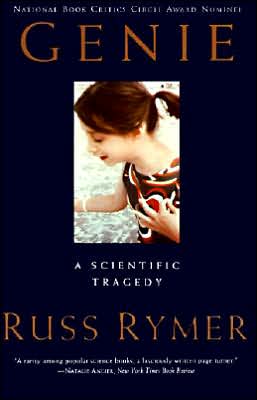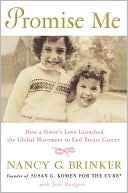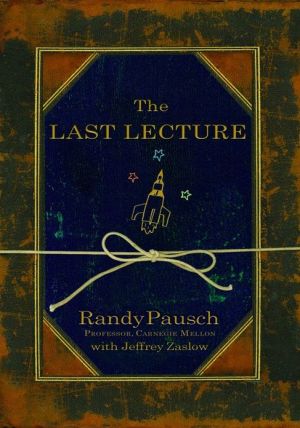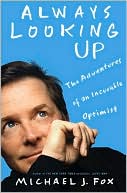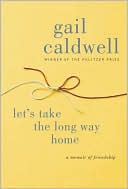Genie: A Scientific Tragedy
The compelling story of a young woman's emergence into the world after spending her first 13 years strapped to a chair, and her rescue and exploitation by scientists hoping to gain new insight into language acquisition.
Search in google:
The compelling story of a young woman's emergence into the world after spending her first 13 years strapped to a chair, and her rescue and exploitation by scientists hoping to gain new insight into language acquisition. Publishers Weekly Permanently strapped to a chair by her deranged father, Genie (a pseudonym) spent her entire childhood in the closed room of a virtually silent house in suburban California. When her nearly blind mother dragged her into a Los Angeles welfare office in 1970, the emaciated teenager could barely speak. Bounced back and forth between foster parents, institutions and her biological mother (her father fatally shot himself in 1970), Genie improved her linguistic skills but ultimately proved unable to master the rudiments of language. Basing this searing, tragic account on an article he wrote for the New Yorker, Rymer tells how linguists and psychologists, eager to test their theories, competed for access to Genie, who now lives in a home for retarded adults, hidden away from researchers by her mother. Rymer suggests that scientists and caretakers treated Genie as a ``wild child'' instead of giving her supportive therapy that might have enabled her to overcome the confining horrors of her childhood. (May)
Chapter 1\ Found\ \ Sometime in the late seventh century b.c., it occurred to Psamtik I, the first of the Saitic kings of Egypt, to wonder which might be the original language of the world. Psamtik was, by all accounts, a forward-looking ruler. He was the first to open his country to large-scale immigration, receiving thereby a substantial infusion of Hellenic culture and, not incidentally, the Hellenic mercenaries with which he secured his reign against the claims of eleven rivals and against the Scythian, Ethiopian, and Assyrian armies on his frontiers. Considering that he undertook his scholarship between perennial military campaigns, it is not surprising that his interest in the language question had territorial overtones: the country possessed of the lingua mundi would own an indisputable hegemonic legitimacy. Yet he pursued his question with an unbiased rigor and a devotion to the scientific method which could be seen as admirably unsentimental, if not downright brutal.\ As recounted by Herodotus from the vantage of two hundred years later, Psamtik's experiment was a simple one: two infants were taken from their mothers at birth and placed in the isolation of a shepherd's hut. The shepherd was instructed not to speak to them. They were reared thus on a diet of goat's milk and silence until one day two years later when, the shepherd returning to his hut, the pair accosted him with their first utterance.The word they had developed was "bekos," which, after some semantic inquiry on the part of the King, was determined to mean "bread" in the language of the Phrygians, an Indo-European people of Asia Minor. With the shepherd's accountin front of him, Psamtik abandoned his nationalistic hopes and stood by the results of his research. He announced that Phrygian was the protolanguage and established himself as the protolinguist, the earliest practitioner of an enduring scientific pursuit.\ Sadly--or perhaps fortunately, since except for the word bekos and a few texts and inscriptions little remains to us of the Phrygian language--Psamtik's research has not well stood the test of time. He has been accused of a certain methodological informality. There is no way of ascertaining whether, for instance, the children had a natural grasp of many languages and were merely expressing an innate human preference for Phrygian baked goods. Historians are satisfied that Phrygia was the birthplace of the flute and the Dionysian orgy, but probably not of human speech, and Psamtik is remembered by science mainly for his errors.\ Nevertheless, in nearly every college primer on linguistics and in innumerable late-night conversations among practicing linguists, he is remembered. One such text, Vivien Tartter's respected 1986 Language Processes, has a two-sentence "Conclusion" that reads, "We still have a long way to go to understand language and its processing, and many exciting years of research ahead. But we have come a long way since Psammetichos!" The King's inclusion in the book, of course, like his more general durability, is evidence to the contrary: Psamtik is very much with us. While his experiment was flawed in fulfilling its declared intention, it was in other ways brilliant--an incisive bit of scientific prescience. It embodied both the theoretical questions and the practical quandaries that still bedevil the discipline. Beyond the arid statistics and the arcane analysis that characterize modern linguistics looms a philosophical question: What makes us special as a species? What part of our essential humanity is expressed in our ability to communicate with language? It is in that light that Psamtik's scientific sin--his experimentation on children--takes on the import that continues to so subtly trouble the science. For his sin was of the essence: in investigating one piece of the human charter, Psamtik, by his lack of compassion, did violence to another.\ The science initiated by the Egyptian king has been revised and reinvented many times over the millennia, most recently in a Horn & Hardart on Woodland Avenue in Philadelphia, where Noam Chomsky began working out a set of ideas so revolutionary that their publication, in 1957, is referred to by some linguists as the Event. To its credit as a human endeavor, the science of linguistics has maintained through its generations a certain wistful indecision about its ambitions. It is a stalwart linguist--or an especially myopic one--who can avoid the temptation to look up from the voluminous tabulations of syntax and phonemics for an occasional glance into the heart of human nature, much the way astronomers look through the silica lens at the origins of time and the creation of the universe, the way physicists find God in the numbers.\ Linguistics and astronomy constitute an unlikely sisterhood, for they are both often constrained to be more observational than experimental--astronomy because its subjects are too distant to be experimented on, linguistics because its subjects are too human. No longer are children impressed rudely from the crib, … la Psamtik, to serve as guinea pigs. But the revelations about how we acquire language still come from children--wild children, who have grown up with beasts as their only companions; abused or neglected children whose family histories replicate the isolation in the shepherd's hut, sometimes with far more attendant horror. The cases are exceedingly rare and generally fleeting. They become the property of whichever researcher is fortunate enough to be present at whichever dark hour.\ In that regard, no subject has ever fallen into the lap of science out of more incomprehensible a world than the little girl who limped through the doors of a Los Angeles County welfare office in the fall of 1970, accompanied by her nearly blind and almost equally traumatized mother.\ Temple City, California, is in many ways a typical town of the San Gabriel Valley, and Golden West Avenue, which runs due north through it, is a typical Valley residential street. In its straightness--for it is as straight as a surveyor's rod--you might divine a purpose, might suppose that its intended destination is the San Gabriel Mountains, whose shadowed canyons and snow-paneled peaks rise above the endless grid of suburban valley streets like the promise of a less confining world. Golden West Avenue never reaches the San Gabriels, near as they are. It never escapes far into the more prosperous reaches of Arcadia. It is interrupted in its northward progress by other straight streets, wider and faster ones, and the San Gabriels remain a taunting vision, as distant in their way as the affluent hills of Hollywood, fifteen miles to the west.\ Heading up Golden West from Las Tunas Drive, Temple City's main drag, you pass the parklike acreage of the city hall and citizens' center and the steep-roofed Christian Church. Then the public places are behind you and an orderly regime takes over of small homes, wooden or stucco for the most part, becoming more modest, shopworn, sunstruck, and insular block by block as you head north. Each house has a drive and a yard, and the yards are distinguished one from the other by a low, bright, chain-link fence or masonry wall or, more often, by a change in the texture of the grass.\ Toward the Arcadia town line, a quintet of royal palms floats over the avenue like an incongruous apparition, their vapor trail trunks rising like rockets from curbside, their foliate starbursts a hundred feet above the ground. They are the street's only aristocratic flourish. For here there are no rolling estates, no guarded gates, no Armed Response medallions such as dot the curbs of Bel Air and Mulholland Drive. The equation of prominence and privacy that prevails in the wealthy precincts of Los Angeles is here turned on its head: security lies in a respectful anonymity--an injunction, in a land of compact privacies, to mind one's own business. People don't come to Temple City to be discovered, they come to be left alone. Golden West Avenue is above all a quiet street of quiet families. Before the disruption of that quiet in November 1970, the residents of one small house behind the row of royal palms were known to their neighbors as the quietest family of all.\ The disruption was spectacular--enough so to earn a week's worth of stories in the Los Angeles Times, sandwiched between accounts of the trial of Charles Manson, the policies of Gov. Ronald Reagan, the acquittal of the My Lai massacre soldiers, and the bombing of Hanoi. "Girl, 13, Prisoner Since Infancy, Deputies Charge; Parents Jailed," read the headline on November 17. The following day, a story headed "Mystery Shrouds Home of Alleged Child Prisoner" featured a photograph of two men standing in a driveway: the girl's elderly, bespectacled father, clothed in rumpled khakis and a rumpled hat, one hand in his pocket and the other loosely holding a cigarette; and her brother, a tall teenager dressed in black, his arms folded and his face wadded in belligerent distress.
\ Publishers Weekly - Publisher's Weekly\ Permanently strapped to a chair by her deranged father, Genie (a pseudonym) spent her entire childhood in the closed room of a virtually silent house in suburban California. When her nearly blind mother dragged her into a Los Angeles welfare office in 1970, the emaciated teenager could barely speak. Bounced back and forth between foster parents, institutions and her biological mother (her father fatally shot himself in 1970), Genie improved her linguistic skills but ultimately proved unable to master the rudiments of language. Basing this searing, tragic account on an article he wrote for the New Yorker, Rymer tells how linguists and psychologists, eager to test their theories, competed for access to Genie, who now lives in a home for retarded adults, hidden away from researchers by her mother. Rymer suggests that scientists and caretakers treated Genie as a ``wild child'' instead of giving her supportive therapy that might have enabled her to overcome the confining horrors of her childhood. (May)\ \ \ \ \ Library JournalThis is the true story of Genie, whose mentally unbalanced father tied her to a potty chair and left her alone in her room. Because of this abuse, Genie lacked language and social skills, and she thereby became a pawn in the great debate over language acquisition. Rymer here presents a fascinating look at a child's abuse and the failure of the scientific community to help her achieve some normalcy. Describing her history and the various tests and studies performed on her, he show how Genie ended up as just another case study. Unfortunately, scientists considered Genie a unique opportunity to study language skills and acquisition rather than a bewildered child who desperately needed help. Recommended for academic and larger public libraries.-- Jennifer Langlois, Missouri Western State Coll. Lib., St. Joseph\ \
